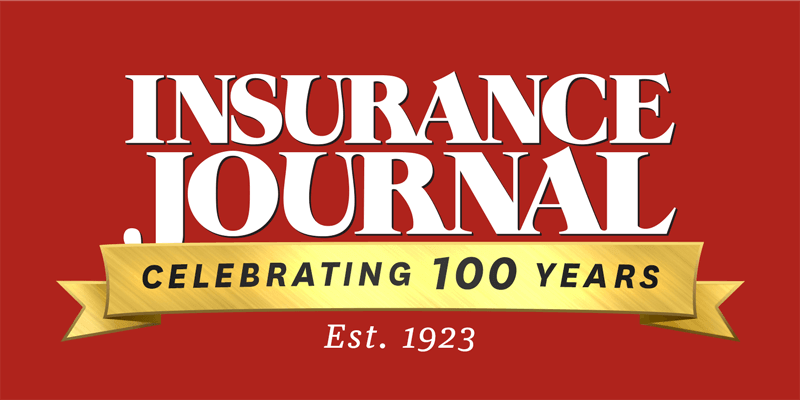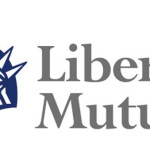Eight out of 160 years of history may not seem like a big deal but for Hanover Insurance Group, founded in 1852, the last eight years have seen a series of big deals.
Eight years ago in 2004, the $2.4 billion heavily personal lines super-regional insurer was trying to regain momentum after a big venture into life insurance and annuities by its parent company at the time, Allmerica Financial, went sour.
Today, the Worcester, Mass.-based company has $4 billion in revenues, writes only property/casualty, conducts business on a nationwide basis, underwrites a balanced book of personal, commercial and specialty lines business, and is one of the country’s fastest-growing P/C insurers.
In recent years, the company has been expanding its footprint, diversifying its products, partnering with select independent agents, adding international and excess/surplus capabilities, and earning strong ratings – executing notes it has played to varying degrees of success since its founding 160 years ago.
“I tell people that one of the parts of our journey right now is taking our place again as one of the lead companies in the marketplace and it’s not the first time we did it,” Frederick Eppinger, CEO, told Insurance Journal in a recent wide-ranging interview.
After eight years of deals shedding the life and annuity businesses then adding new property/casualty products and expertise by buying business from OneBeacon and London-based Chaucer and others, Eppinger thinks now is a good time for Hanover to grow organically – and reflect.
“We are at a milestone as a company. We’re now a couple years into the expansion out West. With Chaucer we have the Lloyd’s connection again. I feel like it’s not a bad time to step back and reflect on where we are and where we’re going and why I think we’re going to be quite successful,” he said. “I reflect on the last four years with a horrible recession and all the others things, the financial crisis, and for us to be growing and being upgraded and really thriving in a difficult time, to me it all comes together into a nice story about where the company is.”
Hanover’s History
Hanover Insurance was founded in 1852 in Hanover Square in New York City. It’s one of the 40 oldest companies on the New York Stock Exchange – a fact the company celebrated on April 4 by ringing the closing bell on the floor of the NYSE.
Hanover started as a fire insurance company. It later added auto, marine and surety, then workers’ compensation, general liability and other casualty lines. It did business with Lloyd’s in London as far back as 1880 and did business in China back in 1920.
Hanover moved its headquarters to central Massachusetts in 1969, the same year it expanded its business in the Midwest with its affiliation with Citizens Insurance Co., based in Michigan.
The insurer has weathered the 1872 Chicago fire, the 1906 San Francisco earthquake, the 1929 stock market crash, and the 2004-2005 hurricanes including Katrina. It also survived the 2008 financial crisis – the only insurer in the country that had its ratings upgraded during this period by A.M. Best, Moody’s and Standard & Poor’s. In 2011, it survived a record $362 million in catastrophe losses.
One of Hanover’s biggest challenges had nothing to do with its property/casualty business. For a period starting in 1992, Hanover came under the umbrella of Allmerica Financial, which included State Mutual, one of the oldest and biggest life insurers. In addition to selling fixed life products, Allmerica became one of the hottest sellers of variable annuities in the late ’90s. It got into deep trouble, however, after the stock market collapsed following the Sept. 11, 2001, terrorist attacks. The company began struggling to generate investment returns sufficient to meet the guaranteed return it promised the holders of its variable annuities.
Allmerica President and CEO John F. O’Brien, who championed the variable annuity sales, resigned in October 2002. In 2003, the company made the big decision to sell its fixed life insurance business and in August of that year hired Eppinger to take over the company.
Under Eppinger, by 2005, the company had completed restructuring and reinsurance deals that led to its eventual exit from the variable life and annuity businesses. The company also returned to its property/casualty roots and restored its name, Hanover Insurance Group.
The Hanover Insurance Group is now the holding company for a group of insurers that includes The Hanover Insurance Co., based in Worcester, Mass., and Citizens Insurance Company of America, headquartered in Howell, Mich., and Chaucer Holdings plc, based in London, and their affiliates.
OneBeacon Deal
Under Eppinger, the company left the life business behind, focusing instead on expanding and diversifying its property/casualty business largely through acquisitions.
While he has overseen about eight acquisitions since he joined Hanover, Eppinger’s deal to acquire the renewal rights to business from OneBeacon Insurance Group in 2009 was one of his biggest and boldest. Hanover acquired the renewal rights to $400 million in small and middle market business. The deal enabled Hanover to not only expand its specialty lines and middle market appeal but also advance its reach into western states.
Eppinger had been looking into expanding to the West and this deal would give Hanover access to about $100 million business there.
Believing that the people were key, Eppinger did something he thinks not many other CEOs would have done. Before a penny of revenue had been put on the books, he hired 165 of the OneBeacon people, right away. He also took on about 200 new agents in the deal.
Taking on the expense of hiring people before knowing how much business was going to be won is risky. Eppinger said competition for renewal rights business is typically fierce because “once you announce one of these you put a bull’s eye on that business with every competitor in the world.” Every competitor knows the accounts will have to transfer to another company so they all go after them.
The deal has paid off. Typical success on renewals is about 50 percent, he said, but Hanover sailed to an 80 percent renewal on the business plus enough new business from agents to cover for the 20 percent that did not renew with Hanover.
After just two years Hanover already writes $400 million out West. In fact, the West has been so welcoming to Hanover that the company just announced it is creating a second western regional division to handle more business.
Chaucer
In July 2011, Hanover took another giant leap with its acquisition of Chaucer Holdings, a leading Lloyd’s specialty insurance group, in a $474 million deal. Chaucer has expanded Hanover’s specialty capabilities and is providing additional product and geographic diversification.
Chaucer writes almost $1 billion in property, marine, aviation and energy products, along with a personal and commercial motor business within the United Kingdom.
Many of today’s Main Street risks have global exposures and Chaucer can help Hanover’s agents with these risks, according to Eppinger.
In Chaucer’s first six months as part of Hanover, it delivered $429 million in net written premium, resulting in pretax income of $32 million.
Business Mix
Under Eppinger, the company has diversified its business along with expanding geographically.
Eight years ago, two-thirds of Hanover’s business was personal lines. Today its mix is almost one-third personal, one-third commercial and one-third specialty.
Hanover’s core commercial lines business generates $1.1 billion in premiums targeting small and middle market accounts. The most commonly written accounts have less than $250,000 of premium. These products include a standard business owners policy (BOP), commercial packages, property, general liability, workers’ compensation and umbrellas.
The company’s U.S. specialty commercial lines business reached $600 million in 2011. Specialized products include those for marine, surety, industrial property, professional liability, management liability, healthcare and commercial umbrellas and excess.
London-based Chaucer brings even more specialty capabilities in property, marine and aviation, and energy as well as liability coverage for professionals, financial institutions and directors and officers. About 24 percent of Chaucer’s nearly $1 billion in business is marine and aviation, 22 percent is property, and 5 percent is energy.
In personal lines, Hanover stresses account-oriented selling of auto and homeowners along with additional companion products for things like identity theft, valuable items, watercraft, home care services, dwelling fire and umbrellas. The personal lines segment produces $1.5 billion in business, 60 percent of which is auto.
The company today is licensed to sell property/casualty insurance in all states and the District of Columbia. It actively markets commercial lines policies in 36 states and in D.C and personal lines policies in 19 states.
More than 30 percent of its total business is in two states: Michigan with 22.8 percent and Massachusetts with 9.6 percent. Its next biggest states for business are New York, California, New Jersey, Illinois, Florida, Connecticut, Texas and Maine.
‘As Simple As That’
Having independent agents representing the company is a strategy as old as the company itself. Samuel Sage of Cleveland became the company’s first agent in 1852. By 1865, Hanover had another 44 agents and by 1871, it had 400.
Successfully partnering with independent agents is also a strategy that Eppinger believes will define Hanover’s future success.
The company has a total of about 2,500 agents nationwide.
The company has its deepest relationships with about 800 top agents to whom the company gives what Eppinger calls “franchise value.” This group of agents is responsible for $3 billion of Hanover’s $4 billion of business. They get an assurance that the company won’t appoint any nearby agents to compete with them and they get the new products and the attention from Hanover’s professionals in local offices.
The strategy is about more than just contracting with the best agents; it’s about giving them value.
“Our whole vision is that we combine innovation and this franchise value with agents with this notion of local adults that have authority. We give our professionals authority,” he said. “Sure we have efficient models and we have automation like everybody else, but we’re not one of the companies that says the black box runs this place.”
While some small commercial lines carriers are centralizing their underwriting or decision-making, Hanover recently deployed nearly 60 underwriters to its local markets. Eppinger said each regional vice president is responsible for about 40 to 50 agents and is available to work with them to solve problems. The company plans to add more field underwriters in 2012.
“Yes, a lot of it comes in automated, like everybody else, but when you have a problem, when there’s a kick out, when there’s a risk that needs some discussion or alteration we have local underwriters. It’s the complete opposite of everybody else,” Eppinger said.
“What happens is at the end of the day there’s no machine that can really understand the risk, particularly on middle market or low end to middle market risk. You need somebody that actually knows the territory, knows the category, knows the risk.”
This approach opens up opportunities for Hanover to pick up business when certain competitors under pressure in today’s market issue across-the-board decisions regarding, for instance, small commercial accounts.
‘Silly Notion’
Eppinger spends a lot of time trying to understand agency economics and trends and is convinced independent agents have a bright future. To think otherwise is “just crazy,” said the CEO, who, of course, would be crazy to pin his own company’s future on independent agents if he did not believe in them.
“[W]hat’s happening in the agency channel is there’s some consolidation within agents. But the stronger agents are getting stronger. I mean their ability to add value is getting better. My view is that the world is not less complex; it’s getting more complex. And the notion that buyers don’t need help is just crazy; it’s silly. It’s a silly notion,” he said.
He said people need more, not less, help.
“You know, most of us don’t want to be experts in insurance. We want to run our business and live our lives. What you’re seeing is that agents have become more and more efficient providers of advice. I mean that’s what I believe. I believe that that value that they provide is getting greater because they’re being more and more efficient in delivering it, and it’s more needed,” Eppinger said.
How’s Hanover Doing?
Despite the soft market, financial crisis, recession and catastrophes, Hanover has grown revenue for five straight years and, according to Dowling & Partners, been the fastest-growing P/C insurer.
By year-end 2010, with OneBeacon in the fold, Hanover grew to be a $3 billion company; it was at $2.4 billion in 2004, Eppinger’s first full year at the helm.
By the end of 2011, with Chaucer on board, revenues were $3.9 billion.
Hanover, like many P/C insurers, ran into some rough spots in 2011, a year with record-setting catastrophes worldwide. Hanover still posted net income of $37.1 million, although that was down 76 percent from 2010. The company’s combined ratio for the year 2011 came in at 104.6, about 10 points of that attributable to catastrophe losses including higher-than-expected losses from floods in Thailand. But even with that, it outperformed the industry average on combined ratio.
Book value per share took a dive in the financial crisis year of 2008 but since then it has been rising and in 2011, Hanover achieved the highest value ($56.24) in its history.
Eppinger does not see additional major acquisitions for Hanover in the near future. Now is the time for execution.
“Obviously, you think about the journey, there was the phase at the beginning that was really fixing a lot. Then we moved into building out these capabilities and enhancing the portfolio and the value propositions of our agents,” he said. “What I believe right now is we’re in a period of executing against the priorities as far as delivering value to our partners. That’s going to lead to a lot of additional growth.”
Topics Carriers Catastrophe Profit Loss Agencies New York Excess Surplus Leadership Property Property Casualty Market London
Was this article valuable?
Here are more articles you may enjoy.


 Liberty Mutual Posts Q2 Loss of $585M Driven By Catastrophes
Liberty Mutual Posts Q2 Loss of $585M Driven By Catastrophes  Heritage Insurance Reports Third Straight Quarter of Profit After Shedding Policies
Heritage Insurance Reports Third Straight Quarter of Profit After Shedding Policies  Kemper Exits Preferred Home and Auto Business Immediately
Kemper Exits Preferred Home and Auto Business Immediately  Missouri’s Cameron Mutual Placed Into Rehabilitation
Missouri’s Cameron Mutual Placed Into Rehabilitation 


